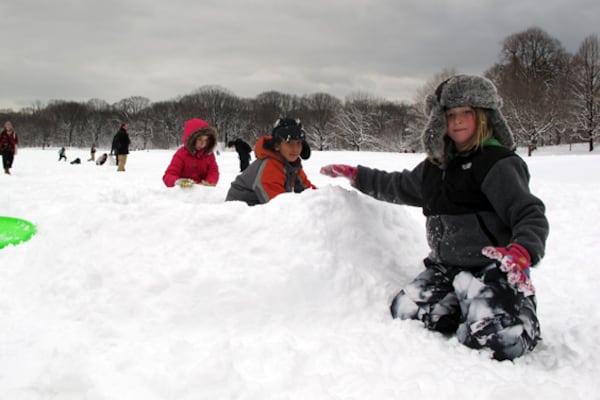Amid an upcoming school year filled with uncertainty, one thing is for sure: There will be no snow days for New York City students.
Even if a blizzard, hurricane, or another major weather event lands on New York’s doorstep this year, the city won’t cancel school, education department officials told Chalkbeat. Instead, everyone will learn remotely that day.
Traditionally, New York City builds at least one snow day into the academic calendar. But schools will no longer need snow days off since students can learn now remotely — and the city needs to squeeze in as many days of instruction as possible. With the school start delayed, the city still needs to meet the requirement to hold 180 days of instruction under New York State Education Department guidelines.
Brief online meetings between students and teachers start Wednesday, and full school days start on Sept. 21, whether students opt for a hybrid of in-person and remote learning, or choose to learn from home full time.
The city also added Election Day, on Nov. 3, as an instructional day, according to the recently released 2020-21 school calendar. All students will learn remotely that day, as many schools are used as polling sites.
“As we reopen schools for this critical school year we are utilizing all of the lessons learned from remote schooling this spring to maximize our students’ instructional time,” education department spokesman Nathaniel Styer said in an email. “This includes providing remote instruction during both Election Day and snow days.”
State guidelines this year call for remote instruction on any day when in-person instruction can’t be provided, whether for inclement weather or other emergencies, city officials explained.
Snow days have piled up during Mayor Bill de Blasio’s tenure. He declared seven snow days his first five years in office, well surpassing the four that his immediate predecessor, Michael Bloomberg, ordered during his 12 years as mayor, Chalkbeat has previously reported. De Blasio’s quickness to call a snow day may have been a reaction to the intense backlash he faced during his first year in office when he kept schools open during a wintry storm.
Previously, snow days were rare because school officials said that students relied on schools as safe havens and the place to get a meal — concerns that remain as students learn remotely for some or all of their school days.
Going fully remote during inclement weather will not only stave off battles over the mayor’s decision-making, but it will also help the city meet its goals. With the combination of student instructional days and allowable time for conferences, the city’s calendar for the 2020-21 school year, if implemented as presented, does indeed meet the required 180 days, state education officials confirmed.





